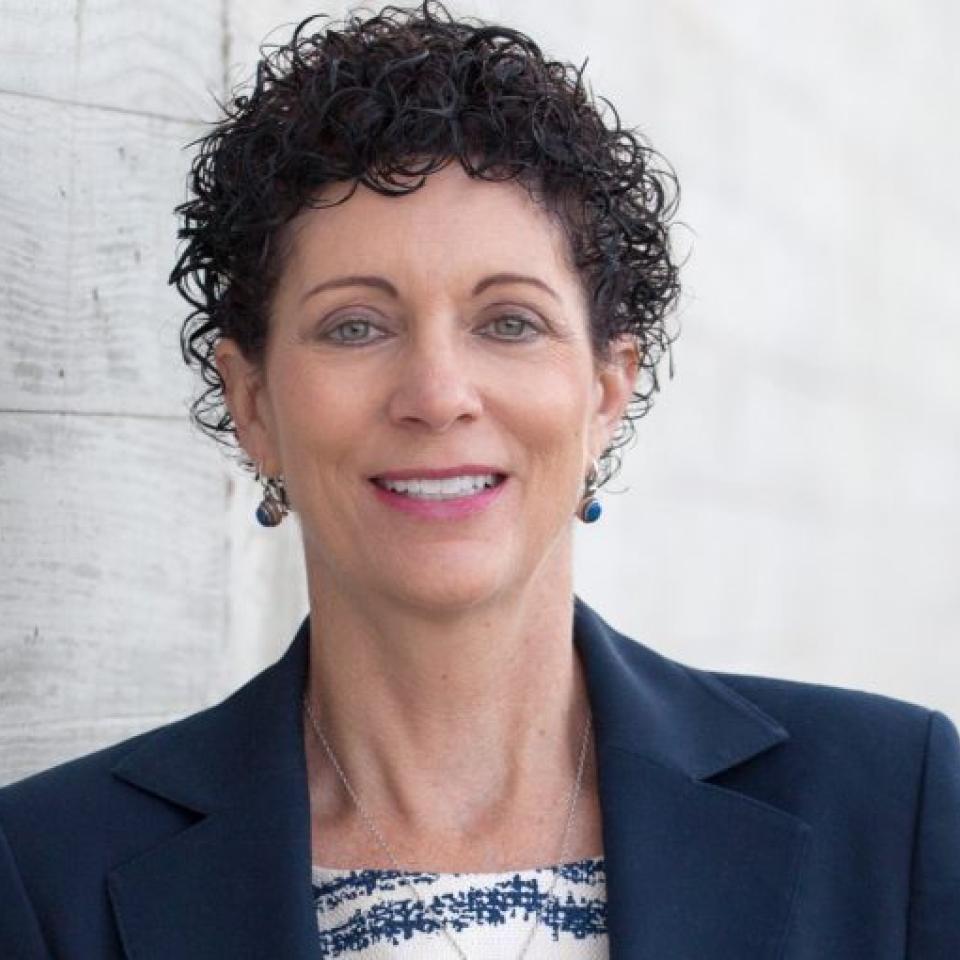When someone is diagnosed with a chronic condition like diabetes, they may receive instructions such as: take this medication, follow this diet, and return for a check-up in a few months.
While access to health care is critical to managing the condition, it’s not the only one. Some individuals face challenges unrelated to their medical care. For example, they might have trouble paying for medication, finding healthy food, or even getting to their appointments.
“Access to health care, of course, plays a role, but so do factors like stable living environments, supportive relationships with family and friends, and the ability to afford groceries and utilities,” said Andrea Wallace, PhD, associate dean for research at the University of Utah College of Nursing (CON). “Counseling patients to eat healthy, exercise, and lose weight can be futile if they are worried about affording groceries or the safety of their neighborhood.”
Factors like housing, job status, race, income, and education are examples of social determinants of health that greatly impact well-being. Researchers at the CON have studied these effects and worked to address these challenges. Their research goes beyond theory, driving real- world impact through practical solutions and community engagement. By addressing these challenges head-on, they’ve made discoveries that improve health outcomes and help people from all backgrounds access high-quality health care.
Their efforts span key areas: immersive simulations to foster empathy, certifications to empower community health workers, targeted interventions to bridge service gaps, impactful legislation to improve health equity, and enhanced communication strategies to facilitate holistic patient care.

We are expanding this work to address communication barriers, such as phones and internet access, and explore how overcoming these barriers can improve health services and well-being.
SIMULATION
Nancy Allen, PhD, an associate professor at the CON, was the first nurse practitioner specializing in diabetes at University of Utah Health and has focused on diabetes self- management across diverse racial and vulnerable groups. “I believe that researchers have an ethical responsibility to address health care needs of vulnerable populations,” said Allen. “As a nurse practitioner, I feel compelled to work for those with less access to quality health care and who are treated unequally because they are
part of historically underserved minorities.”
Allen’s research focuses on increasing usage of continuous glucose monitors for Hispanic adults with diabetes. These devices empower patients with real-time information to make informed decisions about food intake, medication doses, physical activity, and strategies to manage blood glucose levels. By integrating cultural insights into her work, Allen aims to make these tools more accessible and effective for patients, families, and providers.
Allen also helped create virtual reality simulations for students. Simulations designed from a patient’s perspective help students understand how financial concerns, language barriers, and family responsibilities impact patients during clinical appointments.
“We want students to experience what it would be like to be the patient,” Allen says. By immersing students in these experiences, she aims to foster empathy and improve cultural competence, benefiting underserved populations.

As a nurse practitioner, I feel compelled to work for those with less access to quality health care and who are treated unequally because they are part of historically underserved minorities.
CERTIFICATION
Ana Sanchez-Birkhead, PhD, an associate professor at the CON, works with community-based organizations and has led efforts for Utah to formally recognize community health workers and develop a statewide certification program. Community health workers, who typically work where they live, are critical partners. They share health information, educate community members, and advocate for local health needs.
“With the pandemic, many of our communities of color faced challenges being screened, tested, and vaccinated, so the role of community health workers became vital,” Sanchez- Birkhead says.
In 2022, the Utah Legislature passed Senate Bill 104, formalizing the certification process for community health workers and further emphasizing their role in addressing social determinants of health. This certification requires training in core skills like communication, outreach, and health promotion. This enables community health workers to bridge gaps between underserved communities and health care systems. The legislation strengthens the workforce and improves the quality and cultural competence of services, providing a consistent approach to meeting the health needs of vulnerable populations.
INTERVENTIONS
CON researchers are working to enhance the quality of life for Utah residents through targeted interventions. One key focus
is connecting individuals to resources offered through Utah 2-1-1, a statewide information and referral service. Utah 2-1-1 connects people to essential services like housing, food, mental health support, and employment. It also links individuals with providers who can help them meet their needs. Wallace serves on the Utah 2-1-1 Steering Council. She provides research-based insights to improve the service.
“We are expanding this work to address communication barriers, such as phones and internet access, and explore how overcoming these barriers can improve health services and well-being,” says Wallace. “Our goal is to ensure that individuals can fully use the resources available to them, which supports better health outcomes.”
The CON also supports Utah 2-1-1’s efforts by providing key resources, such as staffing support and research funding. These contributions help strengthen community connections and the health system, helping individuals receive care and assistance.
By refining communication pathways, CON researchers help bridge the gap between health care and social services, improving access to essential resources.
LEGISLATION
Michelle Litchman, PhD, also an associate professor at the CON, has focused her research on the challenges vulnerable populations face in accessing life-saving medications. One area of her work has been examining the barriers patients with diabetes encounter when trying to obtain insulin.
During her research, Litchman found that some individuals, were forced to seek the drug through underground exchanges due to its high cost.
“That work supported a Utah-based policy where the legislature passed HB 207 to cap the cost of insulin,” Litchman says. “Multiple states did that, too. That led to President Biden’s Medicare cap of insulin nationally.”
Litchman’s research has influenced changes to help make insulin and other diabetes supplies more affordable.
Her work highlights how research at the CON addresses systemic barriers—high costs, skipped doses, and reliance on borrowing insulin—and drives tangible improvements in patients’ ability to manage their diabetes.
COORDINATION
Catherine Elmore, PhD, a research assistant professor at the CON, has focused her research on improving communication among health care providers, especially during critical care transitions, such as patient discharge. Her research identifies key communication gaps that, if addressed, could improve outcomes, especially for patients negatively impacted by social determinants of health.
“Our study revealed concerns about unmet transportation needs, nutrition, or social support,” Elmore says. “We didn’t expect to hear from primary-care clinicians that discharge readiness was intertwined with unmet social needs.”
These findings highlight the importance of social support— assistance from family, friends, or community networks—in helping patients navigate recovery. Support with tasks like transportation, caregiving, or emotional encouragement often plays a critical role in facilitating a successful transition from hospital to home.
Elmore’s research shows how improving communication among hospital teams and primary care providers can lead to better discharge planning. By facilitating more informed care transitions, she contributes to a system that is more effective and compassionate toward individuals facing social challenges.
TRANSFORMING HEALTH CARE
Through their research and innovative approaches, CON faculty are advancing knowledge and driving improvements in health care delivery. By focusing on social determinants of health, they are working to dismantle barriers that extend beyond access to care.
Their efforts demonstrate the role nurses and nurse researchers play in shaping health care’s future. By addressing issues like housing and transportation, health systems become more responsive to the needs of all individuals. This meaningful change improves lives and community health outcomes.
As faculty and researchers at the CON expand their work, the potential for further impact grows. Whether through virtual simulations for students, providing access to resources like Utah 2-1-1, or contributing to policy changes that reshape health care delivery, they are the vanguard of efforts to create a more inclusive system.
Featured in this article




, College of Nursing .jpeg)